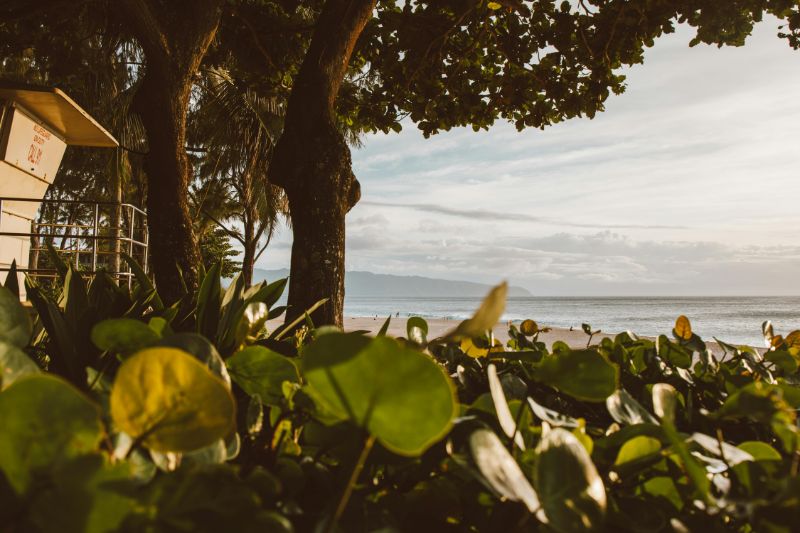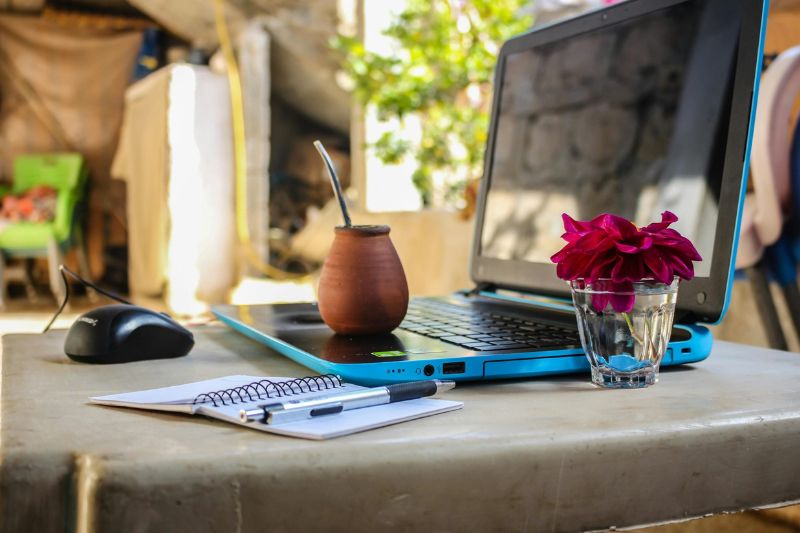For the most part, traveling around the world as a digital nomad is reasonably stress-free, with only the occasional harmless hiccup.
However, experiencing different countries and cultures also comes with added risks, whether it’s an increase in scams, crime, or sometimes even natural disasters. These factors shouldn’t put you off traveling, but being aware and vigilant is key to avoiding inconvenient – or worse, dangerous situations.
In this article, I’ll provide some top tips for staying safe as a digital nomad, so nothing ruins your time abroad.
Researching Your Destination
Every country is different and has its own pros and cons, especially when it comes to safety. Before you book your flight to a new destination, I recommend thoroughly researching the things below.
Travel Advisories
I’m a strong believer in not letting stories scare you too much and using your own experiences as a guide, however, sometimes travel advisories are there for a reason.
While they shouldn’t necessarily dictate your plans, it’s wise to check your country’s government website for the latest updates on potential risks such as political instability, natural disasters, regions with high crime rates or areas where it is generally not advised to travel if you’re alone, or a woman.
Sometimes entering a country or region which is not advised by your government can also invalidate your travel insurance – so take some time to dive a bit deeper and debate whether it’s worth the risk!
Laws and Customs
It can be easy to forget that every single country you go to has its own set of laws and cultural norms; what is acceptable in one place may result in a hefty fine or even arrest in another.
Before each destination, it’s important to familiarize yourself with the rules surrounding clothing, alcohol, drugs, and behaviors that could get you into serious trouble. While some of this may seem like common sense, certain countries, like Thailand, have a unique set of rules. For example, defamation laws are extremely strict, and just posting negative reviews about a restaurant or making poor commentary about the royal family can land you in jail.
To keep this article light-hearted, you can find more funny/unique international laws and norms in this article by the New Zealand Herald – (maybe don’t bother bringing a hunter’s jacket or camouflage trousers on your next trip to Zimbabwe…)
Health Hazards
Particularly in countries with poor infrastructure and rural regions, there is a higher risk of potential health hazards. This can range from foodborne diseases and water contamination to illnesses spread by mosquitos such as malaria and dengue fever.
Firstly, before your trip make sure to visit your doctor and ask them if there are any vaccinations or medications they’d recommend for your destination. Some vaccines are optional, like rabies, but trust me – you’re going to want to get that one just in case you’re approached by any dogs or monkeys, or even if you just want peace of mind when playing with animals.
I recommend doing this early (aka several months before your trip), as certain vaccinations (such as the rabies one) require multiple doses with a set amount of time in between, and it may take time to acquire the vaccination if the pharmacies don’t have it on hand.
It’s also helpful to carry a basic first aid kit with you containing items such as painkillers, digestion medication (especially Imodium!), bandages and plasters. You’ll likely find that you won’t need most of it, but sometimes it’s better safe than sorry.
Surf Specific Hazards

If you are going to be surfing over reef, it’s a good idea to bring antibacterial and antibiotic creams to clean the wound. In the advent of a reef cut, my doctor recommended the following steps:
- Stay out of the water until healed
- Clean the wound with betadine or alcohol wipes
- Apply a topical cream such as Bactroban
- Consider seeing a local doctor
- Antibiotics may be required
I know this sounds extreme, and taking antibiotics isn’t something you want to jump straight to, but in many areas the water you are surfing in may not be clean, and if you get an infection it can be quite serious. A great precautionary measure to avoid the cuts and scrapes is a pair of reef booties.
Round Out Your Research by Talking to a Fellow Traveler
The absolute best way to get a sense of what it’s really like on the ground and to learn the quirky, location specific considerations that your research may not have turned up is to speak to someone who has traveled there before. If you don’t know someone personally, look for Facebook groups for expats or travelers at that destination – chances are someone will be willing to have a chat with you. Ask them whether they encountered anything unexpected and if they have any recommended precautions based on their experience.
Staying Aware In Public Spaces
When you’re in a new destination, it can be easy to let your guard down from the excitement of exploring a new place. However, staying aware while in crowded places such as markets, public transport, and tourist attractions is key to avoiding pickpockets and scammers.

Keep Expensive Belongings Hidden
This might sound like common sense, but it’s something we all forget to do sometimes; especially when you’ve been living in a destination for a while and get comfortable.
I say this from experience, as the one place I almost had my phone stolen was London – a place I’d visited countless times. To cut a long story short, I put my phone on the table while at a McDonald’s (classy) and someone distracted me and picked it up while I wasn’t looking.
I’m not repeating this story to make anyone scared of ever getting a Big Mac again, but instead to make sure that belongings are in a secure bag which is always on you.
Consider ‘Dummy’ Objects
This safety tip may be a tad more extreme, but it made me so much more relaxed when I traveled South America. If you have an expensive phone, consider taking yours or a relative’s old phone out with you that may otherwise be sitting in a drawer somewhere.
Then, if you ever find yourself in a sticky situation, you can hand over the old phone without losing your main device. Similarly, carrying a dummy wallet with a small amount of cash can act as a decoy, keeping your real valuables safe.
Have Multiple Payment Methods
Relying on just one form of payment while traveling can be risky, especially if your card gets lost, stolen, or blocked. To stay prepared, I recommend carrying a mix of options such as two different cards and some emergency cash.
Even more importantly, remember to store them in separate places by having one always with you in a money belt and another stored inside a pair of socks (or similar) in your luggage.
Trust Your Gut Instinct
Everyone knows that feeling of something not being quite right, that uneasy sensation that’s hard to explain but you shouldn’t ignore it. If a situation, place or person is making you feel uncomfortable then trust your gut and remove yourself from the situation as safely as possible.
Whether it’s avoiding a deserted street at night, declining an invitation that feels off, or choosing a different mode of transport, learn to trust that your instincts are usually right.
This is an especially important piece of advice if you’re traveling solo and only have yourself to consult with!
Have An Emergency Plan

It’s unlikely, but if things do go wrong, it’s important to have a backup plan and documents to save you from any unnecessary headaches.
A Plan Includes Travel Insurance
If something happens to you while you are overseas, you could be faced not only with that country’s medical costs, but potentially the cost fly you back to your home country for treatment. Without the coverage of your domestic health insurance or public health coverage, these medical bills can easily be life altering amounts. So don’t risk it, make sure you are traveling with coverage.
Before you go, read and understand your travel insurance policy and what it covers, and save the phone numbers to call in the event of an emergency so that they are easy to access.
Keep Emergency Contacts Accessible
Before going away, consider having a list of contacts on your phone which would be useful in case of emergency.
This includes close friends and family, your travel insurance company, as well as the local authorities, emergency service numbers and embassy contacts. It’s also worth having a copy of these contacts in a separate notebook just in case your phone is damaged or stolen.
Share Your Itinerary With Family or Friends
Between each destination, it’s helpful to share your itinerary with a trusted friend or family member so they understand where you are and what activities you’ll be doing. You can also include information such as flight details and accommodation, just for some peace of mind that someone can keep tabs on you.
Whenever I’ve traveled solo, I usually use location-sharing apps such as Find My Friends or Life360 to stay connected with my partner, who doesn’t have an iPhone. As said before, the likelihood of an emergency is extremely slim, but it always feels better to know that someone is virtually watching out for you and can get help if needed.
Planning For a Lost or Stolen Passport
Losing or having anything stolen from you is one of the worst feelings you can experience while away; especially if it’s your passport.
Like all documents, it’s a good idea to keep both a physical and digital copy in a secure place, such as a hidden part of your backpack. If your passport does go missing, try not to panic and report it immediately to the local authorities. Then, contact your country’s embassy or consulate to arrange a replacement or emergency travel document.
Conclusion
Traveling is supposed to be one of the greatest experiences of your life, so it would be a shame for unexpected situations to ruin it. By being prepared and following some of the tips in this article, you can make sure you avoid any pitfalls – or know how to climb out of them.
For more tips on living the digital nomad lifestyle, check out our other articles and follow us on social media to stay up to date with the best places for remote working, surfing and interviews with experts.



